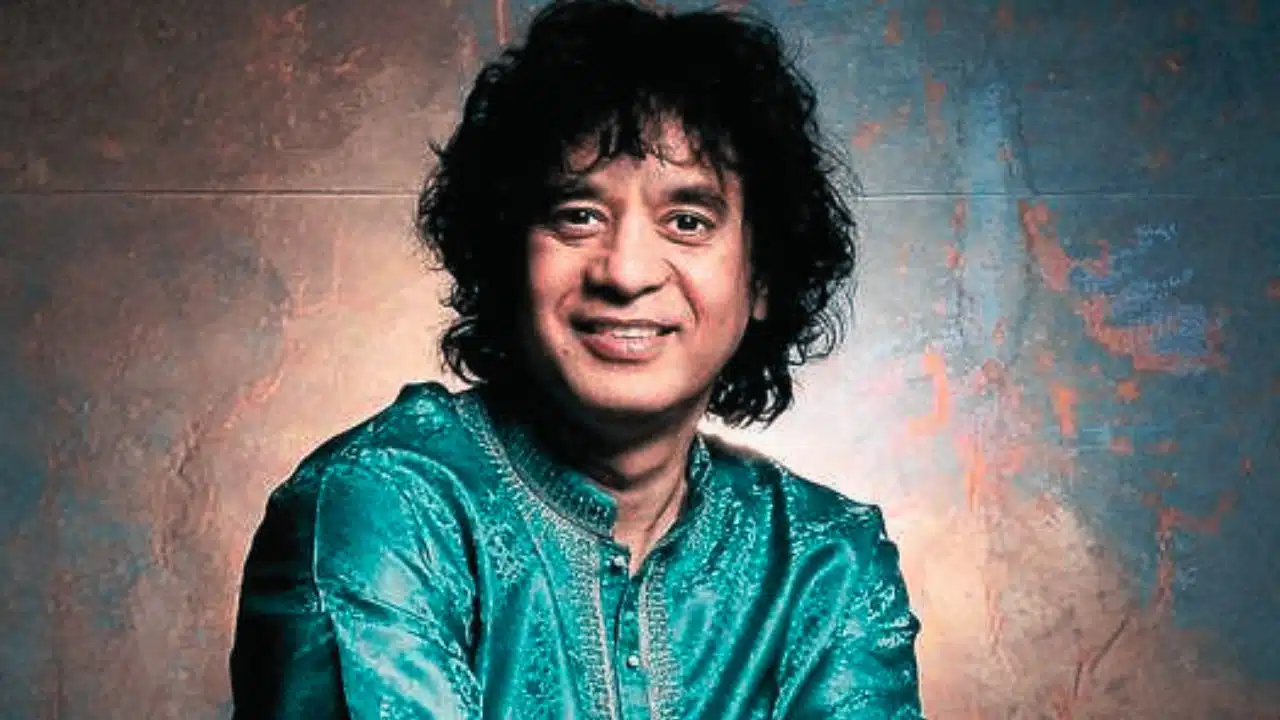Renowned tabla virtuoso Ustad Zakir Hussain passed away on Sunday, December 15, 2024, at the age of 73. His demise has sent waves of grief across the global music community. Hussain, a celebrated figure in Indian classical music and a pioneer of cross-cultural musical collaborations, was undergoing treatment in a San Francisco hospital for heart-related complications.
The virtuoso had been battling health issues in recent months. His hospitalization was confirmed by his manager, Nirmala Bachani, who revealed that the maestro had been experiencing blood pressure problems and other heart ailments before being admitted to the Intensive Care Unit (ICU). As news of his deteriorating health spread, his fans and admirers worldwide hoped for his recovery, but he succumbed to his condition.
Health Struggles and Hospitalization
Hussain’s health became a matter of concern when reports emerged that he had been admitted to the ICU at a hospital in San Francisco. According to sources close to the family, the musician had been dealing with hypertension and other related conditions. His brother-in-law, Ayub Aulia, who is based in London, also shared updates about Hussain’s condition. Aulia had earlier requested the maestro’s followers to pray for his speedy recovery, emphasizing the seriousness of his health situation.
Veteran journalist Pervaiz Alam, through a post on the social media platform X (formerly Twitter), shared details of a phone call with Aulia. Alam described Hussain as a “tabla player, percussionist, composer, and former actor” and highlighted his extraordinary contributions to music. Unfortunately, despite the prayers and best medical care, the world lost this musical genius.
Early Life and Musical Journey
Born on March 9, 1951, in Mumbai, Zakir Hussain was the eldest son of the legendary tabla maestro Ustad Allah Rakha. From a young age, he was surrounded by the rhythms and intricacies of Indian classical music. His father began training him at an early age, and by the time he was 12, Hussain had started performing professionally.
His early performances showcased a precocious talent that quickly gained recognition in India and abroad. Zakir Hussain not only carried forward his father’s legacy but also revolutionized the way the tabla was perceived, making it a prominent instrument on the global stage.
A Pioneer in Fusion Music
Zakir Hussain’s collaborations with international artists redefined the boundaries of Indian classical music. In 1973, he teamed up with English guitarist John McLaughlin, violinist L. Shankar, and percussionist T.H. ‘Vikku’ Vinayakram to form the groundbreaking fusion group Shakti. This ensemble blended Indian classical music with jazz, creating a genre-defining sound that resonated with audiences worldwide.
The Shakti project remains one of the most celebrated milestones in Hussain’s career, setting a precedent for Indian classical music’s integration with global music traditions. Over the years, Hussain worked with numerous iconic musicians, including George Harrison, Béla Fleck, Yo-Yo Ma, and the Grateful Dead’s Mickey Hart, further cementing his status as an ambassador of Indian music.
Awards and Global Recognition
Ustad Zakir Hussain’s contributions to music earned him countless accolades, both in India and internationally. He was a five-time Grammy Award winner, with his most recent recognition coming earlier this year at the 66th Grammy Awards. His group, Remember Shakti, won the Best Global Music Album award for their project This Moment, showcasing the enduring relevance of his music.
In India, he was conferred with some of the nation’s highest civilian honors. He received the Padma Shri in 1988 and the Padma Bhushan in 2002 for his outstanding contributions to the arts. Earlier this year, he was awarded the Padma Vibhushan, the second-highest civilian honor in India, a testament to his lifelong dedication to the craft of music.
Legacy in Indian Classical Music
Zakir Hussain’s influence extends far beyond his performances. As a composer, he created scores for films and dance productions, blending traditional Indian sounds with modern elements. His works for Bollywood and international cinema earned critical acclaim, further broadening the reach of Indian music.
Hussain’s artistry wasn’t limited to music alone. He appeared in several films, most notably in Heat and Dust (1983), which showcased his multifaceted talents. Despite his ventures into other domains, his primary love remained the tabla, and he devoted his life to elevating the instrument’s stature.
Personal Life
Ustad Zakir Hussain is survived by his wife, Antonia Minnecola, a Kathak dancer and teacher, and their two daughters, Anisa Qureshi and Isabella Qureshi. Minnecola often played a pivotal role in Hussain’s career, supporting him during his global tours and performances.
The family, while requesting privacy during this difficult time, expressed gratitude for the outpouring of love and condolences from fans, friends, and fellow artists. Hussain’s demise leaves a void in the hearts of music lovers, but his family has vowed to preserve his legacy.
Condolences have been pouring in from all corners of the world. Indian Prime Minister Narendra Modi took to social media to express his grief, calling Hussain “a cultural icon whose music transcended boundaries.” Several prominent musicians, including A.R. Rahman, L. Subramaniam, and Anoushka Shankar, have paid heartfelt tributes, recalling Hussain’s humility, warmth, and unparalleled talent.
An Enduring Legacy
Zakir Hussain’s passing marks the end of an era in Indian classical music. Over his illustrious career spanning six decades, he inspired generations of musicians and music lovers. His innovative approach, blending traditional tabla techniques with contemporary influences, ensured that Indian classical music found a place on the global stage.
While the world mourns the loss of this maestro, his recordings, compositions, and legacy as a cultural bridge-builder will continue to inspire and resonate for generations to come.




































